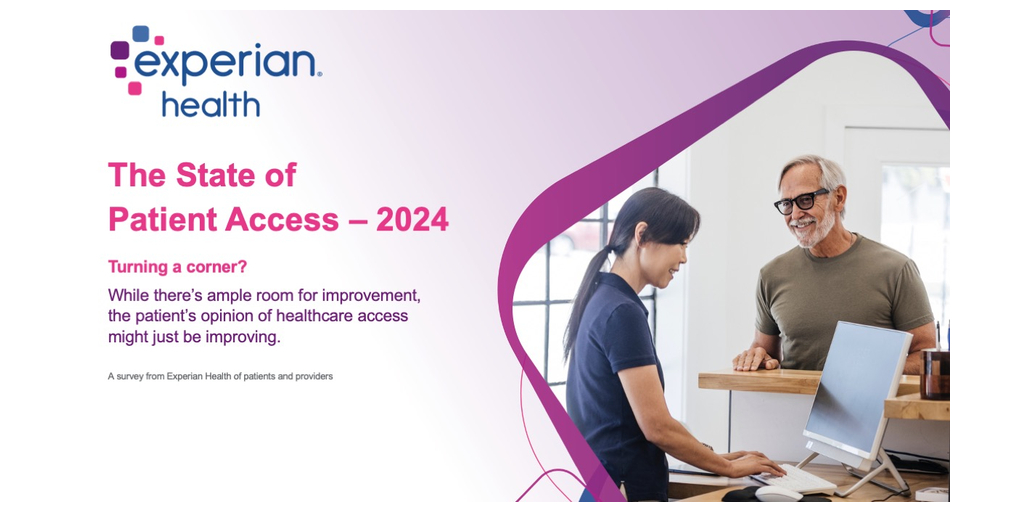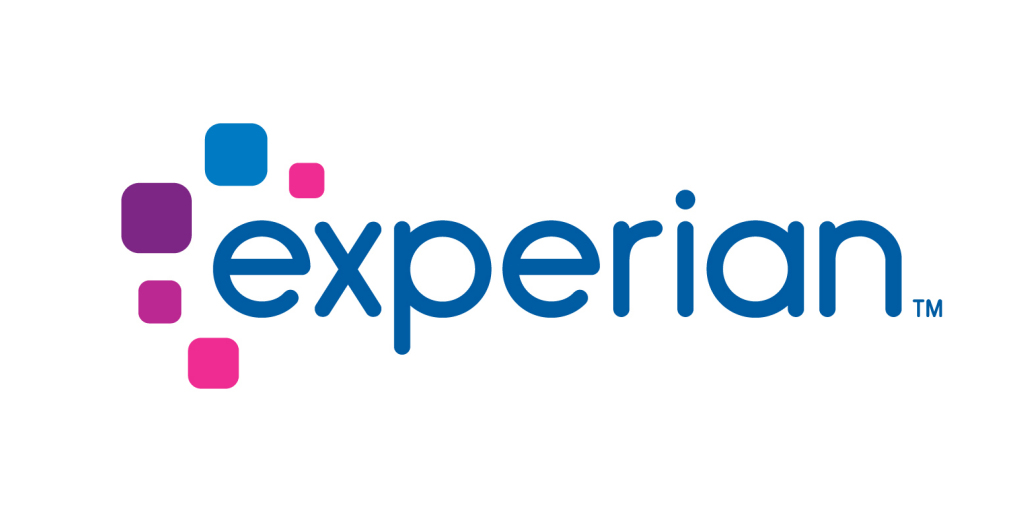An annual Experian Health survey shows a sharp reversal from last year with more satisfaction and perceptions that healthcare services have improved
COSTA MESA, Calif.–(BUSINESS WIRE)–#digitalhealth–Healthcare providers and patients are in rare agreement that healthcare access and service-levels are improving, according to the Experian Health 2024 State of Patient Access survey. Almost a third (28%) of patients and 55 percent of providers surveyed say the environment is getting better while patients still say the top challenge is seeing a practitioner quickly.
Perceptions of patient access on the upswing
Based on a survey fielded in February 2024 of 200 healthcare revenue cycle decision-makers and more than 1,000 adults who received care or oversaw care for a dependent, results overall reveal that operational improvements by providers – many through the adoption of technology – have influenced many patient satisfaction levels. The most significant contributors to happier patients are the improvements in staffing levels, more accurate price estimates, increased use of telehealth and self-scheduling options.
“Providers are continuing to embrace technology to solve challenges and the positive results are coming to fruition,” said Clarissa Riggins, Chief Product Officer at Experian Health. “From launching patient portals to enabling mobile payment tools, they are adopting a myriad of new innovations to operate more quickly and efficiently, and patients – while not saying access to care is fantastic – are beginning to see the difference.”
Still room for improvement, but many bright spots
There is an uptick of 11 percent among patients who say access is better vs. survey results in 2022.
Among patients who feel the patient access experience is better, they identified the following as improved:
- Check-in and registration
- Understand insurance more clearly
- More payment options
What is important to patients when evaluating healthcare access? Survey respondents chose the following as priorities:
- My medical provider’s ability to tell me what my insurance covers, before treatment, is important to me (96%)
- The ability to schedule appointments anytime, via online or mobile tools is important to me (89%)
- If my information hasn’t changed, I shouldn’t have to fill out paperwork (85%)
- An accurate estimate helps me better prepare to pay for my care costs (81%)
- I would like more digital options for managing my healthcare (60%)
While patients are more positive overall, seeing a doctor in an acceptable timeframe still poses difficulties. Among all patients surveyed, 27 percent say seeing a practitioner quickly is the number one challenge when trying to access healthcare. This is the exact same result as in 2022. Of the 22 percent of naysayers who say that patient access is getting worse, a majority (79%) pointed to the inability to see a practitioner quickly as a reason why.
Adoption of technology fuels provider optimism
Despite a grim view of patient access in the 2022 survey, providers were optimistic they would turn the corner. This appears to be accurate as the percentage of providers surveyed who say things have improved increased by 28 percent to more than half (55%) giving a thumbs up in 2024.
The top indicators providers selected as reasons the patient experience is better include:
- Telehealth has improved time to see a provider
- Automation has increased speed and accuracy
- Staffing is better
- Improved insurance identification technology
- Digital/mobile communications are implemented
There is some misalignment though among providers regarding staffing shortages, however, as the minority (20%) saying patient access has become worse cited staffing shortages as a top issue.
Additionally, while staffing may be a permanent headache for providers, the issue of “dirty” data collection at patient intake is causing another worrisome issue. Almost one in two providers (49%) say patient information errors are a primary cause of denied claims. Among the top ten barriers providers selected to improving patient access, half were related to claims including management of authorizations, maintaining multiple solutions to determine eligibility, and executing a search for patient insurance coverage.
The outlook, however, continues to be positive as a majority (79%) of providers are planning to continue investing in the betterment of patient access.
Since 2020, Experian Health has checked the pulse of the healthcare industry’s systems and strategies that make or break a patient’s access to care, including factors such how easy is it to book appointments and register for care, and if patients can understand and pay their bills without too much difficulty.
To meet evolving needs and simplify healthcare, Experian Health offers providers patient engagement solutions and products to reduce claims denials including exclusive products like the artificial-intelligence-powered product AI Advantage and Patient Access Curator, which reduces the capture of patient data to one click and 30 seconds.
To access the free State of Patient Access report, go to experian.com/state-patient-access.
About Experian Health
At Experian Health, we serve more than 60 percent of U.S. hospitals and more than 7,500 medical practices, labs, pharmacies and other healthcare providers with data-driven platforms and insights that help our clients make smarter business decisions, deliver a better bottom line and establish strong patient relationships.
Experian has 22,000 people operating across 32 countries, and every day we’re investing in new technologies, talented people and innovation to help all our clients maximize every opportunity. With corporate headquarters in Dublin, Ireland, we are listed on the London Stock Exchange (EXPN) and are a constituent of the FTSE 100 Index.
For more information about Experian Health, visit http://www.experianhealth.com. Learn more about Experian at www.experianplc.com or visit our global content hub at our global news blog for the latest news and insights from the Group.
Contacts
Sandra Bernardo
Experian
1 949 529 7550
Sandra.bernardo@experian.com






